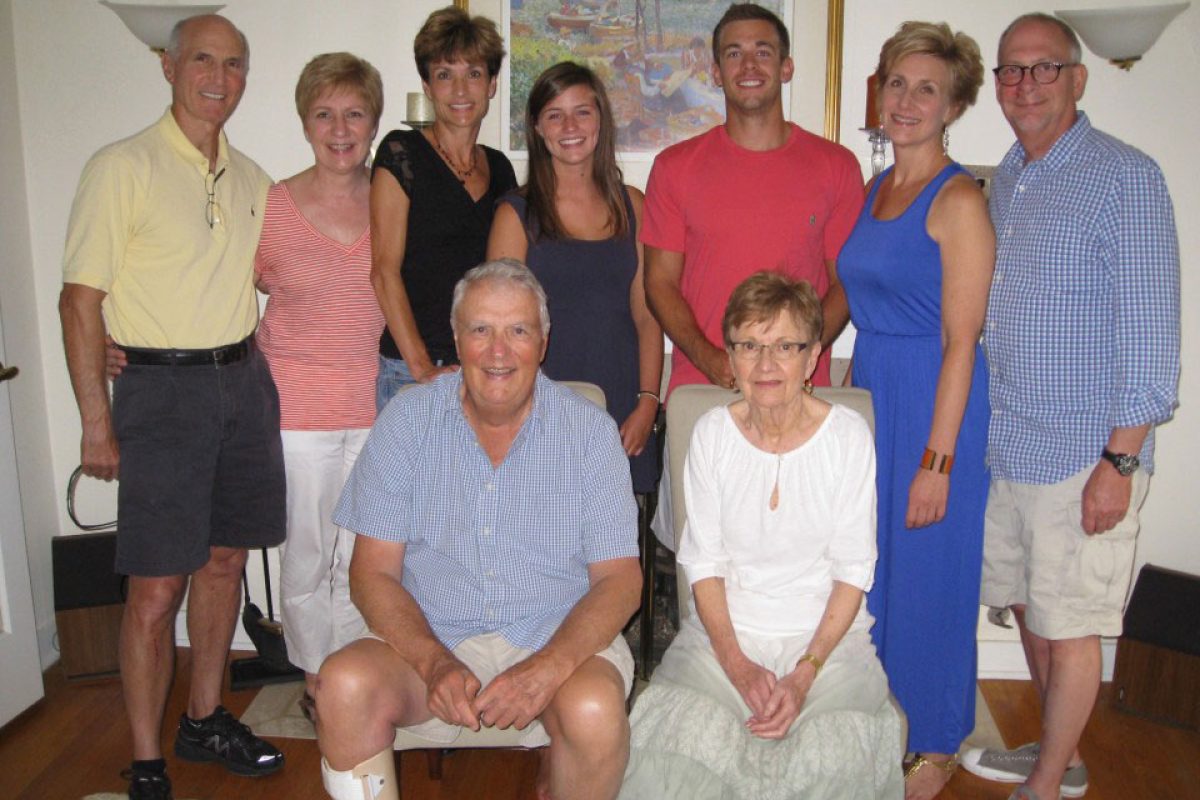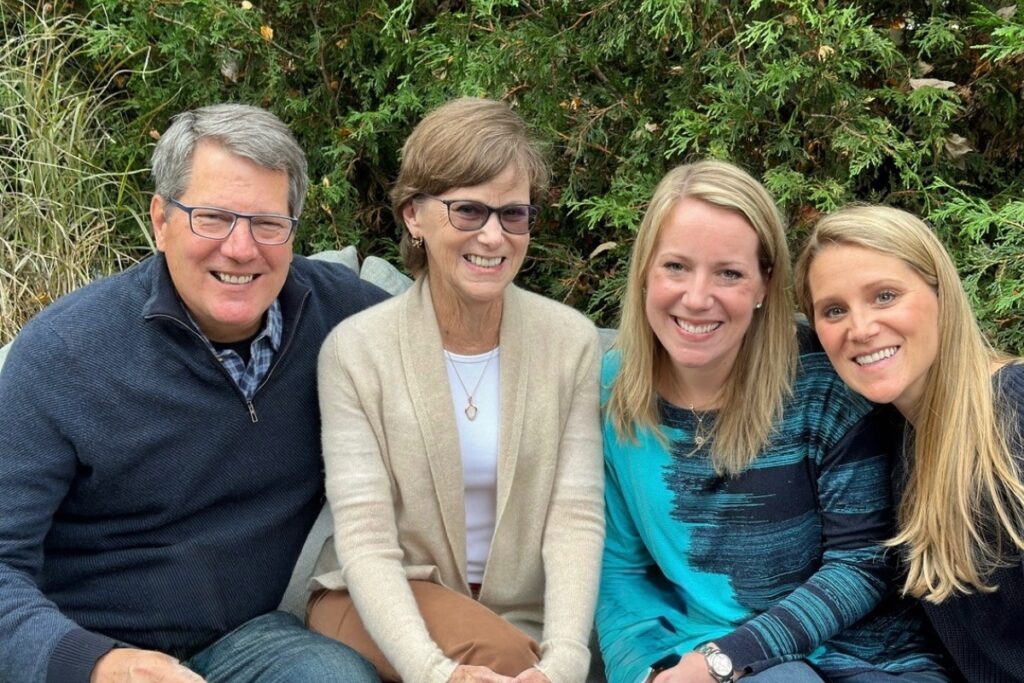Henry “Hank” Strunk of Western Springs, Illinois, was known for his love of fishing, interest in helping young people grow personally and professionally, and commitment to giving.
Diagnosed with an aggressive form of prostate cancer, he sought care at the University of Chicago Medicine. His care team, led by Russell Szmulewitz, MD, helped Hank live another eight years with the disease. When Hank’s family asked him why he thought he did so well with his diagnosis, he said it came down to two things: a positive attitude and quality care—from both his family and the team at UChicago Medicine.
“We were focused on quality of life throughout Mr. Strunk’s treatment,” Szmulewitz explained. “While immunotherapy and radiation helped slow the progression of his disease, the support he had and his positive outlook definitely contributed to a better outcome.”
Hank also benefited from UChicago Medicine’s unique, multidisciplinary approach. In addition to receiving care from Szmulewitz, he saw a team of expert radiation oncologists and urologists.
“Dad really felt like he was part of the team at UChicago Medicine,” said Sarah, one of Hank’s three daughters. “The physicians didn’t make him feel like a patient, but instead a partner in his care.”
Daughter Jane agrees. “Excellence was important to our dad, and I think the entire operation at UChicago Medicine is steeped in excellence,” she said. “Even during the later months of his treatment, Dad really enjoyed interacting with the whole team—from the doctors to the technicians to the people who greeted him by name when he came in.”
As Hank fought a courageous battle with prostate cancer—the most common cancer among American men—his family learned more about the disease and the critical need for research funding. Although prostate cancer affects nearly as many men as breast cancer affects women, it receives only half the level of research funding.
After Hank’s passing, his wife, Donna, and daughters were inspired to honor his memory and the exceptional care he received.
“We were able to see the direct impact of the outstanding care Hank received at UChicago Medicine,” Donna said. “Dr. Szmulewitz and his team played an important role in improving his prognosis and quality of life.”
To show their appreciation for Hank’s care, the family sought to continue his legacy of paying it forward.
“It felt natural to us to share our dad’s generosity after he passed away,” Sarah said. “From the time we were young, we saw our parents giving back—whether it was taking UNICEF boxes out when we went trick-or-treating or seeing our parents donate to their alma mater and church. Actions speak louder than words, and our parents led by example.”
After touring Szmulewitz’s lab and meeting with his team, the family chose to fund a fellowship supporting postdoctoral graduate students devoted to advancing prostate cancer research.
“We were so impressed by the young researchers we met in Dr. Szmulewitz’s lab,” daughter Sue said. “What especially stood out to us was their collaborative spirit and enthusiasm for their work.”
The Henry D. Strunk Family Fellowship will not only allow young researchers to advance projects that might not otherwise move forward, but will also contribute to future breakthroughs in our understanding of prostate cancer. The first Strunk Family Fellow will be Anthony Williams, PhD.
“It is truly an honor to be named the inaugural Strunk Family Fellow at UChicago Medicine,” Anthony said. “This gift represents a strong commitment to providing those in my position with important resources and time to expand upon hypotheses that can be leveraged for future funding.”
Szmulewitz sees the Strunk family’s gift as akin to planting a tree. As each fellow gains new skills and expertise, the tree’s branches will grow stronger—taking the field in new directions that will ultimately benefit many patients in the years to come.
“The Strunk family’s gift enables us to support the careers of talented fellows like Anthony who will not only advance the research we’re already doing, but will build their own projects and eventually their own successful careers,” he said.
The family feels that supporting the growth of a young prostate cancer researcher is a truly fitting tribute to Hank.
“It’s our hope that this gift will not only carry forward our dad’s commitment to helping young people, but will also drive new discoveries that will help other patients like him facing a prostate cancer diagnosis,” Sue said.




